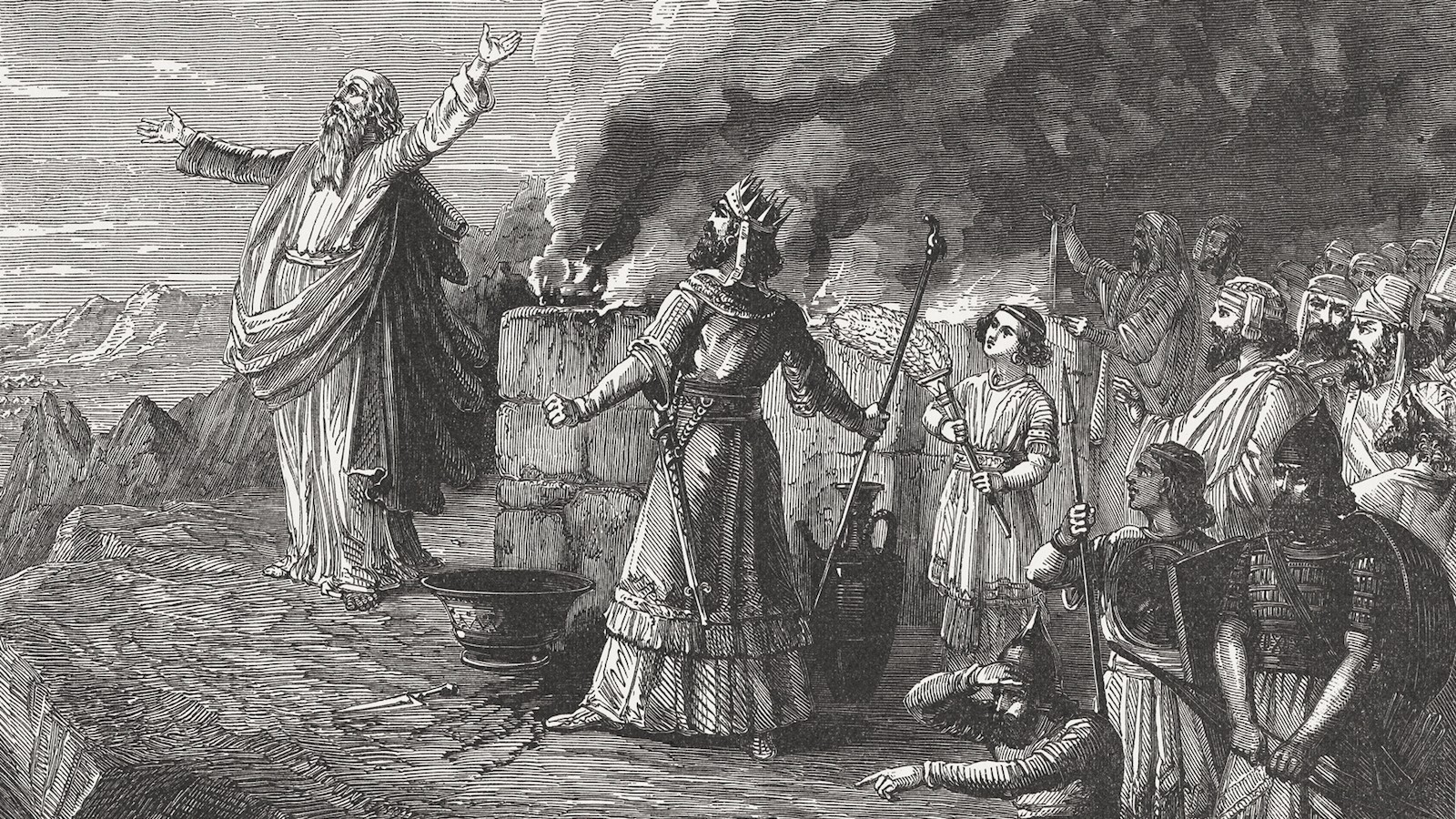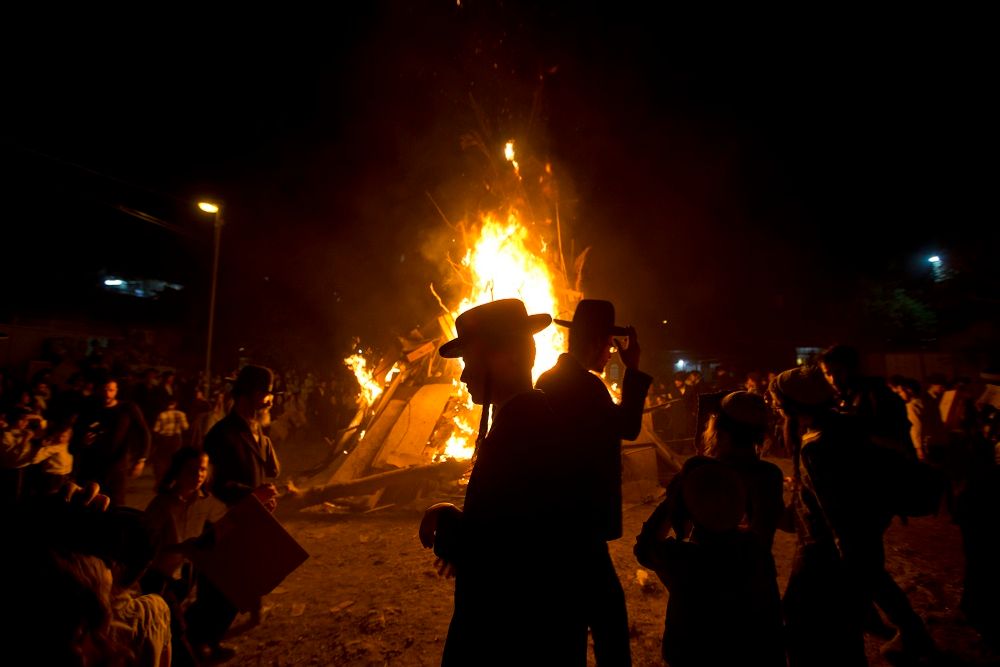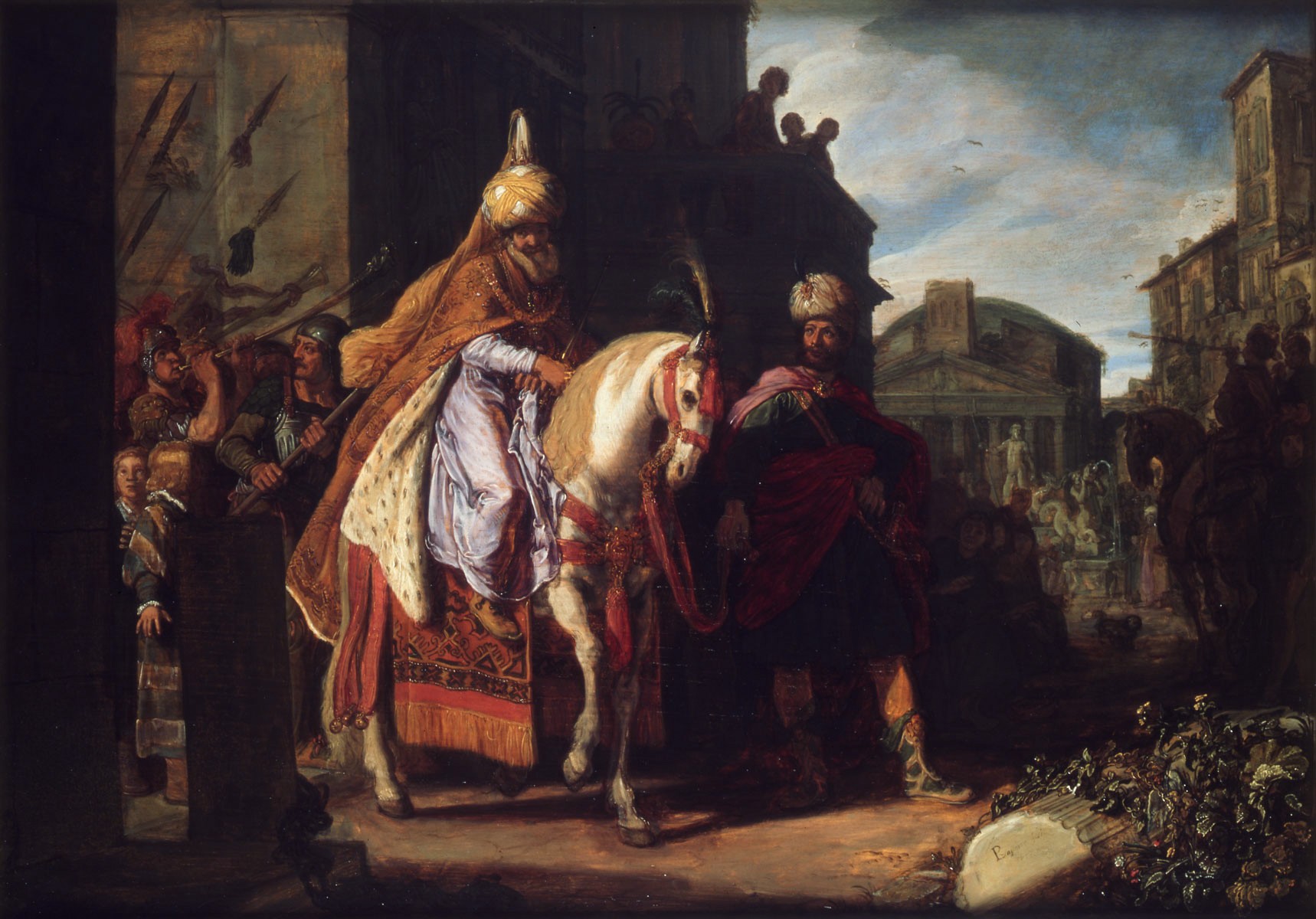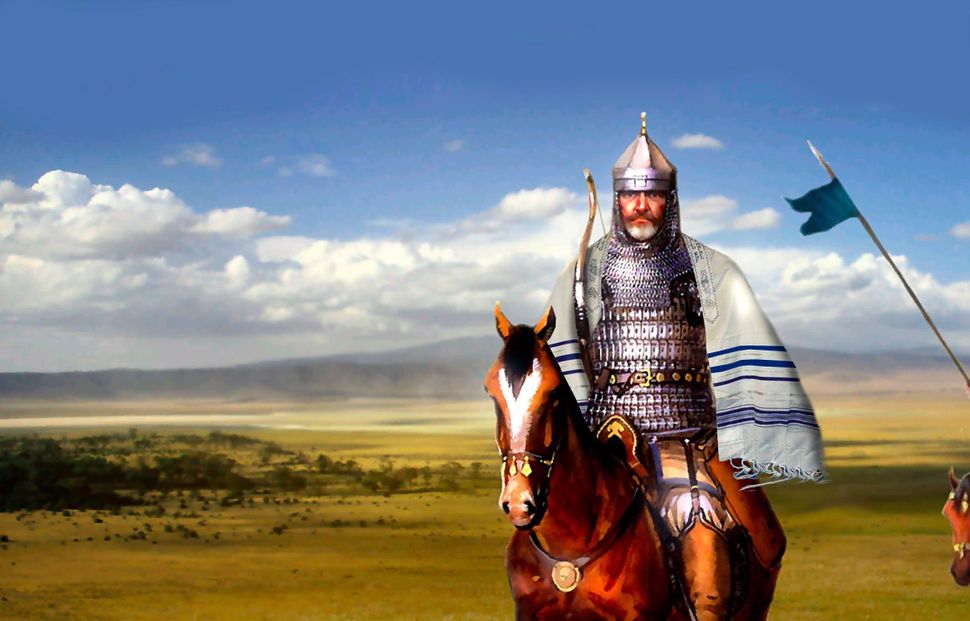Overview: An overview of the arguments concerning the legality of worship outside of Jerusalem in ancient Israel. The arguments for and against as well as the possible responses.
Before the establishment of prayer as a means of worshiping God, sacrifice has long been the main method of deity worship. The early Genesis figures as well as the later patriarchs offer sacrifice regularly at various locations (Gen. 4:3-4, 8:20, 12:7-8, 22:13, 35:7). These sacrifices were erected upon altars made of earth or stone, and were sometimes temporary and sometimes permanent monuments.
Jewish law states that from after the conquest of Canaan by the Israelites, a central place of worship was to be chosen by the prophets. It is only at this location that the Israelites can sacrifice their animals and nowhere else. But recent scholarship has put into question the notion that only centralized worship in Jerusalem was legal. Various scriptures hint at legal sacrifices outside of Jerusalem, even after the establishment of the YHWH temple in Jerusalem. We will bring the arguments for and against, as well as the responses for each side, in an attempt to paint an accurate presentation of both sides of the aisle on this issue.
The traditional narrative
The traditional narrative is that centralized worship was always an obligation. Starting from the tabernacle in the desert (Lev. 17) all the way to the building of the Temple (Deut. 12), all sacrifices were to be brought to this specific place of worship. No other “outside” sacrifices were permitted (Lev. 17:4, Deut. 12:5-14). This was the law from the very beginning, since, according to the traditional view, all five books of Torah were written by Moses.
There were only three periods of exception according to the rabbis. The first was before Sinai, when the patriarchs sacrificed anywhere at will. The second was during the conquest and settlement of Canaan (a 14-year period under Joshua), since at that time there was no “peace and settlement” criteria for a centralized worship (Deut. 12:10; cf Jud. 2:5).[1] And the third is after the alleged destruction of Shiloh until the building of the Temple (more on that later).
From after the building of the Temple in Jerusalem, all outside sacrifices were outlawed (Maimonides, Yad Hachazakah, maaseh hakarbanot, Ch. 18; bet habechirah 1:3,). Even after the establishment of the Tabernacle in Shiloh (Josh. 18:1), long before the building of the Temple, no outside sacrifices were allowed (Deut. 12:5-14, Josh. 22).
Before arriving permanently at Shiloh, the tabernacle at first resided in Gilgal (Josh. 4:19-24), and then moved to Shiloh (Josh. 18:1) for more than three hundred years until the times of Samuel (I Samuel 1:24).[2] In his lifetime, the Ark of Covenant was taken into battle by the Israelites and after their defeat it was stolen by the Philistines (I Samuel 4), until they eventually returned it to Kiryat-jearim (I Samuel 7:1). Some believe that Shiloh was destroyed during this period (which is why the Ark was not returned to it), but there is no indication for this in the book of Samuel. The archeological question of destruction of Shiloh has still not been settled.[3] Several allusions to the destruction of Shiloh are mentioned in Psalms and Jeremiah, although no date is given for that destruction (Jer. 7:12–14, 26:6, 26:9 and Ps. 78:60). This alleged destruction is used as the justification for the “outside” sacrifices brought by Samuel and Saul (I Sam. 7:17, 9:12, 11:15, 14:35, 15:21).[4]
The skeptical narrative
The skeptical narrative supported by mainstream bible scholarship is that there were two phases in Israelite sacrificial history. At first, sacrifices were allowed to be sacrificed anywhere, including in one’s backyard. There were still places of worship, where more permanent altars were erected, but individual temporary altars were not outlawed. This is analogous to synagogues of today, in which prayer is centralized, despite the fact that prayer can be done anywhere by anyone.
Even after the construction of the main YHWH Temple in Jerusalem, sacrifices were still allowed to be brought outside of this temple, despite it being the main place of worship: the place where YHWH resided on Earth (Ex. 25:8). It was only in the days of King Hezekiah that “outside sacrifices” were outlawed (II Kings 18:3-4). This prohibition was strengthened even farther by his grandchild, King Josiah (II Kings 23:8).
The book of Deuteronomy, prohibiting outside sacrifices, is believed to be a later book, perhaps from the times of Josiah, in which times the “outside sacrifices” were strictly outlawed. Parts of other books of Tanakh that support this centralized worship are also believed to be from this era (including most of Joshua and Kings, books that also share linguistic parallels to Deuteronomy).
What prompted Hezekiah and his later successors to institute centralized worship in Jerusalem alone?
At that time the Assyrian Empire had succeeded in capturing the Northern parts of Israel as well as all the Southern strongholds, to the exception of Jerusalem and its countryside where Hezekiah still reigned (II Kings 18:9-13). In order to strengthen his capital, both politically and religiously, the Judeans decided to only allow sacrificial worship in Jerusalem alone. This idea of centralized worship made its way into Deuteronomy, which is alleged to have been written in this era. Scholars believe that the lost Torah scroll that Josiah found (II Kings 22-23), was in fact his way of introducing Deuteronomy to the people and posing it as a book lost from Moses. (For arguments against this theory, see here.)
Problems with the traditional narrative
The traditional narrative is questionable on several fronts. Although some answers may be given for some of the issues, the overall bulk of issues may raise some serious doubts about the traditional narrative. First and foremost, we see legitimate “outside sacrifices” by various prophets, even after the establishment of Shiloh and the Jerusalem temple.
The prophet Elijah sets up an altar at Mt. Caramel and sacrifices to it, despite the already established Jerusalem Temple (I Kings 18). Apparently he even uses an already existing, broken YHWH altar in the city (v. 30). Besides for his “outside sacrifice,” he continues to lament about the destruction of YHWH altars – in the plural (I Kings 19:10). This would indicate more than just the Temple altars in Jerusalem.[5]
Rabbinic scholars noticed this issue and explained that Elijah’s actions were temporary and done for the important challenge of his time in order to prove to the people that Baal was not an effective god. The issue with this explanation is that he used a pre-existing YHWH altar – an altar that apparently wouldn’t be sanctioned and thus wouldn’t be appropriate for Elijah to use as an altar.
As for the second issue, the mention of altars in the plural, it is explained that this refers to non-sacrificial altars (Rashi on I Kings 19:10), which wouldn’t have been problematic outside of Jerusalem (Joshua 22).
Another sacrifice offered outside of “the place that God will choose” (Deut. 12:14), was a sacrifice by Manoah, father of Samson. He is told by an angel to sacrifice to God, and so he does, but it is in his field outside of Shiloh and his sacrifice is accepted by God (Jud. 13:19).
This is explained by rabbinic commentaries to be an exception, since he was explicitly told by the angel to sacrifice there, making it an exception and not the rule (see Radak on that verse). But the problem with this explanation is that Manoah did not know that he was an angel, thinking instead that he was a man of the street (Jud. 13:16). This is therefore yet another example of “outside sacrifices” in early Israelite history. Jud. 6:24-26 also has an “outside sacrifice” offered in Ophra by Gideon the Judge.
Several more examples are found in the book of Samuel, where Samuel and Saul both sacrifice animals outside of Shiloh (I Sam. 7:17, 9:12, 11:15, 14:35, 15:21). The general response given to these particular instances is that Shiloh was destroyed at that time so there was no central place of worship until the building of the temple in Jerusalem. The problem with this theory is that there is no indication of Shiloh being destroyed then (discussed above). Even if it were destroyed, why not set up a new central place of worship instead of each man serving in his own place like Deuteronomy condemns.
In the blessing for the Zebulun tribe, Moses exclaims that they will sacrifice righteous sacrifices in what seems to be a mountain in their territory (Deut. 33:19). However, this is not necessarily the case as this mountain might indeed refer to Mt. Moriah, as rabbinic scholars understand it to be.
Another issue with the traditional narrative is that there is no condemnation of outside sacrifices until the time of Hezekiah (II Kings 18:3-4). Why were the earlier generations never condemned for this apparent widespread practice? Furthermore, it would seem coincidental that specifically in the time of Hezekiah are the “outside sacrifices” first rebuked. At his time, for the first time, Israel was narrowed down to just Jerusalem and the surrounding countryside (II Kings 18:9-13). It would therefore make political sense for Hezekiah to want to solidify Jerusalem’s importance for the countryside by making it also the religious center of his narrowed kingdom. The people would now have to come and go from Jerusalem often in order to sacrifice their animals. Or perhaps was this new political development just coincidental to the first rebuke of outside sacrifices? Furthermore, this new narrowed-down kingdom of Hezekiah finally made Jerusalem within walking distance from all the countryside, a distance that before the reduction of the Israel map would have been very far.
We can perhaps explain this early lack of rebuke for outside sacrifices. In early Israelite history, the people were religiously weak and offered sacrifices to Baal and Asherah. The ones sacrificing to YHWH – albeit outside of Shiloh and Jerusalem – were at least not serving the idols. It was not the ideal, but still better than sacrificing to foreign gods, and therefore not rebuked.
This answer may work but has its weaknesses. First off, from the wording of Leviticus (Lev. 17:4) it would seem that outside sacrifices were considered a serious religious offense, even earning the karet (excommunication) punishment. This wouldn’t be an offense compromised on in the prophetic rebukes – and yet alone the prophets and leaders themselves offering outside sacrifices. Another issue with this answer is that there is no indication that by Hezekiah’s time specifically the people were religiously stronger than in previous generations. Earlier generations’ kings were praised as righteous and as doing proper worship of YHWH – yet there is no mention of them removing the bamot (outside sacrifices), as there is by the praise of Hezekiah.
The book of Exodus talks of building altars.
מִזְבַּ֣ח אֲדָמָה֮ תַּעֲשֶׂה־לִּי֒ וְזָבַחְתָּ֣ עָלָ֗יו אֶת־עֹלֹתֶ֙יךָ֙ וְאֶת־שְׁלָמֶ֔יךָ אֶת־צֹֽאנְךָ֖ וְאֶת־בְּקָרֶ֑ךָ בְּכׇל־הַמָּקוֹם֙ אֲשֶׁ֣ר אַזְכִּ֣יר אֶת־שְׁמִ֔י אָב֥וֹא אֵלֶ֖יךָ וּבֵרַכְתִּֽיךָ׃
Make for Me an altar of earth and sacrifice on it your burnt offerings and your sacrifices of well-being, your sheep and your oxen; in every place where I cause My name to be mentioned I will come to you and bless you.
וְאִם־מִזְבַּ֤ח אֲבָנִים֙ תַּֽעֲשֶׂה־לִּ֔י לֹֽא־תִבְנֶ֥ה אֶתְהֶ֖ן גָּזִ֑ית כִּ֧י חַרְבְּךָ֛ הֵנַ֥פְתָּ עָלֶ֖יהָ וַתְּחַֽלְלֶֽהָ׃
And if you make for Me an altar of stones, do not build it of hewn stones; for by wielding your tool upon them you have profaned them.
(Ex. 20:21-22)
These verses describe the creation of earth altars and stone altars. Why would the Temple, made of gold and precious materials, feature a stone or earth altar? The best explanation would be that these verses are referring to the regular people who make altars in their backyards using the cheap material available for them. In fact this issue was so apparent to the builders of the Temple, that they decided to interpret these verses as being the base of the altar, rather than the altar itself. It was interpreted as being the base upon which a golden or bronze altar was erected (II Chron. 4:1; cf I Kings 8:22, 8:64, 9:25).
Similarly, the choice given – “and if you make for me an altar of stones” – reflects an individual choice rather than “the” altar of the Tabernacle/Temple which would have had very specific instructions just as the instructions given for all other aspects of the Tabernacle/Temple. This is perhaps evidence for “outside sacrifices” being permitted.[6]
Isaiah presents another possible issue for the traditional narrative. He prophetically describes an altar to be erected for sacrifices and a pole (maseva) for YHWH in Egypt (Isa. 19:19-22). But in defense, perhaps only the restriction of centralized worship was limited to the Israelites.
The final and major issue with the traditional narrative is the glaring contradiction between Leviticus and Deuteronomy. What transpired in the biblical account of the Wilderness travel? According to Leviticus 17, all sacrifices were brought specifically and only to the central Tabernacle and placed upon the altar there. But according to Deut. 12:9, they were sacrificing anywhere at will. In an attempt to explain this glaring contradiction, rabbinical commentators understand this Deuteronomy verse to be referring to the future 14 years during the conquest of Canaan (see Rashi on that verse). This is obviously not the intent of the verse that talks of its present times.
The contradiction can be explained as two authors writing at different times. Deuteronomy (likely written before Leviticus[7]) explains that although beforehand “outside sacrifices” were allowed, after the settlement of Israel, it is no longer allowed. Leviticus had the same theology outlawing “outside sacrifices” but approached it differently historically. Leviticus understands that all throughout Jewish history “outside sacrifices” were not allowed – including in the tabernacle. Thus, both Deuteronomy and Leviticus represent an attempt to rewrite history in the mold of the future ban of “outside sacrifices,” likely after the time of King Hezekiah.
Problems with the skeptical narrative
While the evidence is stacked against the traditional narrative, there are some issues that need to be addressed or cautioned by the skeptical narrative in their attempt to date the book of Deuteronomy which focuses on centralized worship.
While the evidence seems to support a sacrificial evolution within Israelite religion, dating Deuteronomy to Josiah comes with its problems.
A strong issue the 7th century hypothesis has it the fact that the key word bamot is not mentioned even once all throughout Deuteronomy. It’s mentioned dozens of times in Kings and also mentioned in Samuel, books that were allegedly written at the same time as Deuteronomy. One of Josiah’s main objectives in his writing of Deuteronomy, according to bible critics, was to centralize worship in Jerusalem and eradicate the practice of bamot. Yet no mention of bamot in this document that he unveiled. What’s the irony of that! Chances are that the word bamot wasn’t a popular term when the Torah was written by Moses in the second-millennium BCE. Only in Josiah’s times (or later) and in the time of the composition of the Book of Kings did the word bamot come into style.
On a similar note, if Josiah’s objective was to permit sacrifices at Jerusalem alone, one narrative in Deuteronomy comes off as awkwardly strange. In Deuteronomy Ch. 27, Moses tells the Israelites soon to pass into Israel to set up an altar on Mt. Ebel and to sacrifice animals to the Lord upon arriving in the Land of Israel. If King Josiah was attempting to sanction sacrifice in Jerusalem alone, why would he insert this counterproductive narrative?
One answer that can be given is that there was a popular legend about an altar erected in Shechem. In order to justify it, Deuteronomy places the altar’s erection prior to the settlement of the land and thus making this “outside sacrifice” legal.
Another issue the skeptical narrative must deal with is the specific commandments within Deuteronomy that are quite awkward for the Josiah-era. These commandments would have no place in a Josiah forgery attempting to mold the Law for his specific time and place. Deuteronomy commands the extermination of the Canaanites[8] and the Amalekites[9] – despite them both having long been gone from the Judean landscape by Josiah’s times.[10]
Perhaps, to answer this issue, we can suggest that the extermination of Canaan and Amalek was still in the Israelite national memory. Perhaps there was even a general national guilt feeling and particular blame on the Davidic monarchy for the atrocities done against these ethnicities. Therefore there was a need to religiously justify those exterminations and the book of Deuteronomy does just that.
Similarly, Deuteronomy prescribes the king not to “cause the people to return to Egypt.”[11] This would make sense in Moses’ generation in which the people often contemplated returning to Egypt,[12] which is why a warning must be given. In the days of Josiah, there would be non reason to warn against the return to Egypt. Similar emphasis on Egypt is found in Deut. 28:68, which in a Josiah context would have been an awkward and meaningless phrase. Deuteronomy also sympathizes with Edom,[13] who in the time of Josiah would have actually been a sworn enemy of Judea.[14] This sympathizing makes much more sense in a Mosaic context. Unless of course this was all a brilliant writer attempting to subconsciously convey an Egyptian background.
These hints in Deuteronomy may point to an older element within Deuteronomy. Of course to contrast this are the many late post-Mosaic references in Deuteronomy (Deut. 1:1, 2:12, 3:11, 3:14, 34:9, 34:5-10), which indicate several layers within Deuteronomy and not a single author. If King Josiah (or his contemporaries) composed Deuteronomy, it would not at all be clear which parts he wrote.
___________________
[1] See Zevachim 117b.
[2] See Zavachim 118b. There was also apparently a brief time that the Ark resided in Bethel; see Jud. 20:27.
[3] https://www.biblicalarchaeology.org/daily/news/evidence-of-shilohs-destruction-gone-missing/
[4] See Radak commentary on I Samuel 7:9.
[5] It is unlikely to be referring to the two Temple altars, the golden altar and the copper altar, since there is no record of the kings destroying the Jerusalem temple.
[6] Had these verses been referring just to the small periods of time when “outside sacrifices” were permitted, according to traditional understanding, then it would have been clear about that. Instead, its blanket statement about earth/stone altars seem to reflect a general acceptance of these “outside sacrifices.”
[7] Deuteronomy has a memory of a time when everyone sacrificed anywhere at will, whereas Leviticus is at a time when the idea of centralized worship is so entrenched in the Israelite religion, that the Wilderness sacrifices were understood to have been sacrificed in the Tabernacle alone.
[8] Deut. 20:16-18.
[9] Deut. 15:17-19.
[10] Some suggest that there were packets of Canaanites still left in the Land as traveling merchants. But even if that were the case, they were certainly insignificant enough to be of great concern to Josiah and for him to sanction the extermination of Canaanites. There is certainly no recorded tension between the Israelites and the Canaanites in Josiah’s times. This commandment makes much more sense in the context of Moses than of Josiah.
[11] Deut. 17:16.
[12] E.g. Numbers 14:14.
[13] Deut. 23:8, and 4.
[14] See e.g. Jeremiah 49, Obadiah 1, and Psalms 137.





Rambam felt that G-d neither needs nor wants sacrifices, and only “allowed” it because people in ancient times felt differently. In other words, it is a concession to human needs.
“For the life of the flesh is in the blood, and I have given it for you on the altar to make atonement for your souls, for it is the blood that makes atonement by the life.” Leviticus 17:11. G-d requires a blood sacrifice for foreign of sin.
“My sacrifice, O G-d, is a broken spirit; a broken and contrite heart you, G-d, will not despise.” Psalm 51:17. However, the ritual of a blood sacrifice is futile without accompanying confession of sin.
Therefore, both the shedding of blood and acknowledgement of one’s sin are necessary for G-d’s forgiveness.